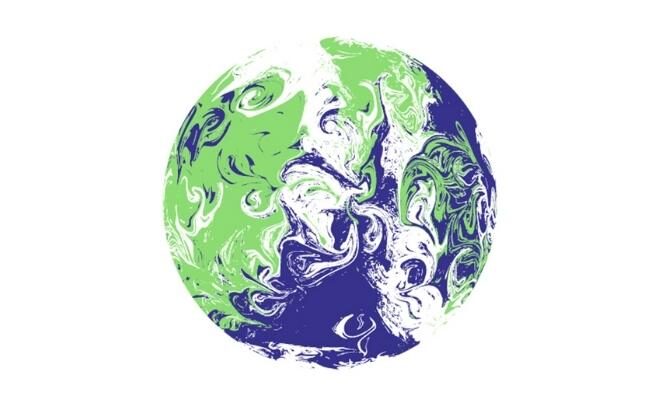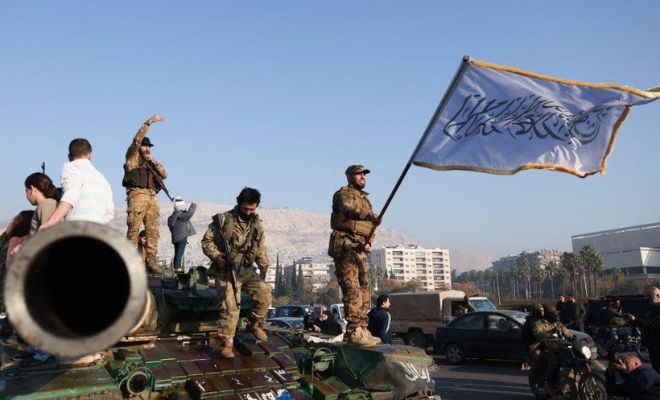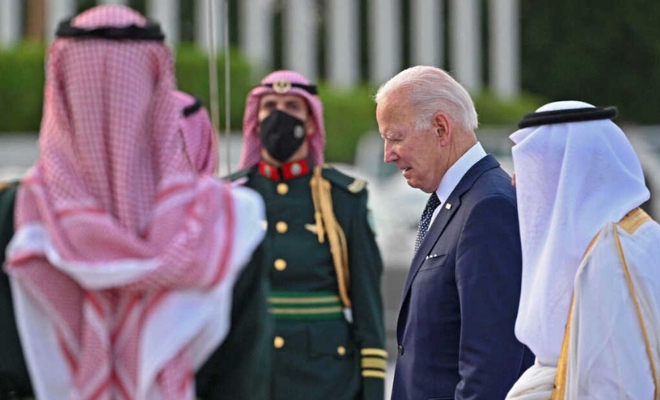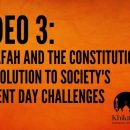The Kashmir Issue in Focus
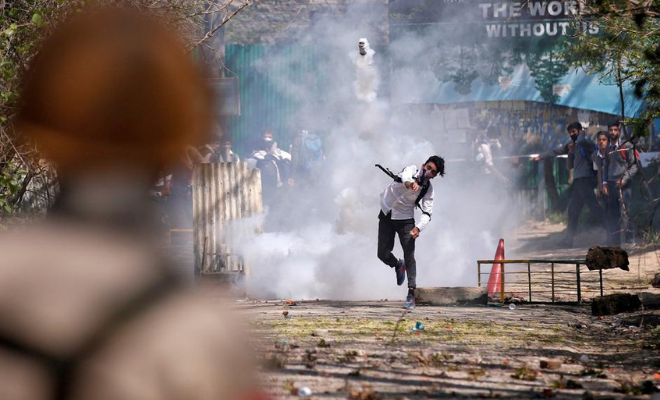
The 5th of August marks the one-year anniversary of India’s revocation of Kashmir’s “special status.” India deployed its troops to annex the region and enforced a lockdown that has left many Kashmiris without access to phone and internet services. Despite the fact that thousands of students, activists, and politicians were arrested – with many still incarcerated – the brave sons and daughters of Kashmir again planned protests to mark this dark day in history. In response, the Indian Army imposed new curfews and deployed more troops to the occupied region.
While the Kashmiris were renewing their commitment to liberate the land, the Supreme Court of India authorized building the Ram Mandir temple on the ruins of the Babri Masjid, which Hindu Karsevak mobs demolished in 1992.
For Muslim minorities in the Indian subcontinent, this has been an especially bleak week. What makes the situation even worse is the fact that none of the factors that disempowered the Ummah in the Indian subcontinent were ever addressed.
The Indian state still wields the threat of mob violence, criminalization, military action, and the loss of citizenship over them. And even in Muslim-majority regions – such as the so-called “Islamic Republic” of Pakistan – there is no commitment to protecting Muslims, and certainly no vigor in carrying Islam.
As Pakistan celebrated its so-called ‘Independence Day’, it is important that we ask ourselves: How did we get into such a dire situation?
Islam in the Subcontinent – A Guiding Force
While no single community can take ownership of the rich and diverse history of India, Muslim rule has been integral in weaving the fabric of Indian’s identity. This is evident in the historical monuments we see, the languages we speak, and the very cities that stand today. Without the longstanding Islamic influence, today’s India would be unrecognizable.
Starting with the Battle of Makran during the rule of Umar ibn al-Khattab (ra) in 644 AD and the conquest of Sindh by Muhammad ibn Qasim in 712 CE, Islam took roots in the Subcontinent through vibrant and powerful communities.
The Muslims of South Asia contributed to Islamic sciences and applied the Shariah laws. They successfully defended the region from the tyranny of the Mongols through the Delhi Sultanate, and had constructed an economic superpower under the Mughals. They achieved great heights, yet still maintained their bond to the rest of the Ummah and held their allegiance to the Caliph of their times.
Not only did centuries of Islamic rule in India bring South Asia economic prosperity, but it also respected the land’s ancient peoples. This is why Hindus, Buddhists, Jains and Sikhs thrived under hundreds of years of Muslim rule. This lasted until the British used a divide and rule policy to inspire religious and ethnic separatism in the region.
Muslims were key to resisting colonialism. For example, in the Rebellion of 1857, Bakht Khan led rebel forces to a series of victories against the East India Company. Before that, Hyder Ali and his son Tipu Sultan defended Mysore from the British. Even after the Muslims lost the material means, their scholars and politicians rallied in support of the Ottoman Caliphate through the Khilafat Movement.
Following the departure of the British Raj, the Muslims – who had carved a role as among India’s natural leaders – were shrunk into a weak and vulnerable community.
Pakistan – A Fortress of Islam?
The Muslim response to this new condition was to strive to create a space where Muslims could be safe, and where an Islamic society could be rebuilt.
The rough notion that became popular at the time was that the Muslim-majority regions (such as Bengal, Punjab and Sind) and princely states could become a new nation called Pakistan, while the areas that were majority Hindu would become India. While the masses of Muslims – who were driven by their iman and not by any material incentive – had sacrificed their homes, their communities, their languages, and even their lives to travel to unknown areas, the Pakistan they had hoped for never emerged.
What they got instead was a country that was still tied to the colonial institutions of the British! What they got was a Pakistan that was independent only in name, and whose Islam was confined to some flowery, yet empty, language in its constitution. In reality, Islam made no impact on Pakistan’s social, economic or political systems. This has left the country vulnerable to the corrupt whims of the elite, and the interests of the colonizers.
The Trouble with Pakistan
Pakistan’s colonized status impacts every aspect of its political and economic institutions. For example, Pakistan’s colonial past determines why the country, even when it is not being run by someone who is personally corrupt, is primarily interested in servicing its debt to the colonizers, instead of taking care of its own citizens. In contrast, a sincere leadership would outright refuse to repay any interest (riba) payments, especially since these loans were made by corrupt governments against the command of Allah (swt). This principled approach would require iman, boldness, short-term sacrifice, and forging new economic and foreign relations ties. But this kind of boldness is absent from those who rule over us.
That is because the root of Pakistan’s problem is not simply corruption, lack of education, or a weak national character. Rather, the root of Pakistan’s – and the Muslim world in general – problem is an unwillingness to break away from the colonizers. As long as we continue to enslave ourselves to the institutions of secular-liberal democracy, and capitalist, we will never succeed in the dunya or the akhira. Rather, we will remain tools for the Capitalist nations, who continue to leech off the Ummah’s resources. We will continue to fail because the Capitalist system is alien to Islam and does not emanate from the Islamic aqeedah – the same aqeedah that RasulAllah (saw) and his companions (ra) fought and died for.
It is the aqeedah of Islam – and the economic, social and political systems which emanate from it – that allowed RasulAllah (saw) to create a society in Madinah that is to this day unparalleled in Mankind’s history. A society that protected the lives, wealth, and dignity of each of its members and that fought against injustice and misguidance across three vast continents.
Such was the hope and dream of the hundreds of thousands who died in the struggle to create Pakistan.
They did not sacrifice their lives for Pakistan to become a self-serving secular liberal democracy! Their sacrifice was not for a secular regime with an over entitled military class. Rather, they died in the hopes of creating a Pakistan whose name and very existence would stand for the first Kalimah of this deen: La illaha illa Allah.
Defending the Ummah
In pre-partition, many of the Muslims of the subcontinent who were advocating for the creation of an independent Muslim homeland were aware that due to their economic situation or geographic position, it would not be possible for them to ever migrate to and live in this Islamic society they were calling for.
So why did they do it? Because of their commitment to this deen, and their belief in the idea of being in one Ummah. Because they recognized that if Muslims were ever to have dignity, it would be through the creation of a state dedicated to implementing and defending Islam. They had hoped that Pakistan would be that society.
And it is out of this same iman and sense of a shared dignity as an Ummah, that Pakistan must transform itself into the voice of the Muslims in the subcontinent, taking a harsh approach against those who would dare destroy our masajid, occupy our lands, and lynch the believers for believing in Allah. He (swt) commands us in the Quran:
“…And if they seek help of you for the religion, then you must help” [TMQ 8:72]
This help can be in the form of a mixture of diplomatic and economic pressure, moral and material support of Muslims fighting for liberation, and if necessary, to mobilize the brave soldiers of the army, to liberate the Muslims and our lands.
What can we do?
The point of reminding ourselves of what a just Islamic society would look like is not fantasizing ourselves with delusions of grandeur. Rather, it is to commit ourselves to making these concepts a reality in the Muslim lands. As Muslims in Canada, we have the relative prosperity and security to do what many in the Ummah cannot.
We need to connect with our aqeedah, ensuring that we are forming our personality and character on the basis of reliance on Allah (swt) alone, and obedience to Him and His Messenger (saw). We need to expose ourselves to the problems facing our community, both the local youth and elders, and the global condition of the Muslims. As we examine these issues, we need to learn the ahkam of Islam, both as they apply to our individual issues, and to the Ummah as a whole.
We need to use our collective platforms to call for the implementation of Islamic rule in Pakistan, so that it can be a voice for the oppressed all over the subcontinent, both Muslim and non-Muslim. May Allah (swt) make us of those who have a part in this achievement. Ameen.
“…Or do you think that you will enter Paradise while such [trial] has not yet come to you as came to those who passed on before you? ” [TMQ 2:214]



